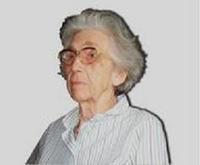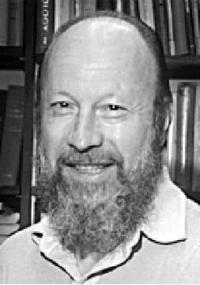2002 Yasumoto Lifetime Achievement Award:
Grethe Rytter Hasle (University of Oslo, Norway)

Grethe Hasle was unable to attend the awards ceremony at the Xth International Conference on Harmful Algae, St. Pete Beach, Florida, 25 October 2002. Nevertheless, Gustaaf Hallegraeff presented a talk, celebrating her achievements, during the awards ceremony.
Then, on 9 September 2003, a special celebration took place for her at the University of Oslo, Norway. Nina Lundholm wrote a description of the ceremony, and Øjvind Moestrup gave a speech, during which he presented Grethe Rytter Hasle with a unique gift.
Theodore J. Smayda (University of Rhode Island, USA)

Theodore John Smayda is this year's co-recipient of the XHAB2002-ISSHA Yasumoto Lifetime Achievement Award at the Xth International Conference on Harmful Algae. Ted, as he prefers to be called, continues to be a major contributor to the field of ecology of marine phytoplankton. Throughout his tenure as a professor at the University of Rhode Island's Graduate School of Oceanography, his stimulation to students, researchers and fellow faculty has been a constant. His emphasis on the harmful algal bloom paradigm has given him a focus for delving into basic ecological principles governing these as well as non-toxic blooms in the sea.
As an undergraduate at Tufts University, Ted developed a strong interest in marine invertebrates that led him to seek graduate studies at the University of Rhode Island's fledgling program at the Narragansett Marine Laboratory. It was there that he first saw marine phytoplankton, making a lasting impression that still remains his passion today. After completing a Masters thesis on the phytoplankton of lower Narragansett Bay, for which he received the Phi Sigma Award, Ted applied and was admitted into a graduate program at Yale University to work under Gordon Riley. Prior to beginning his studies at Yale, Ted received a Fulbright Fellowship for a year-long stay at the University of Oslo, Norway, where as a visiting young scientist in Professor Trygve Braarud's laboratory, he absorbed all he could from the world's leading authority on the ecology of marine phytoplankton. His one year stay extended into a four year journey of excitement that culminated in his being invited to become a candidate for the degree of Dr. philos. at the University. He received a Woods Hole Oceanographic Associates Fellowship and a Crown Princess Martha Fellowship from the Scandinavian - American Foundation to continue work in Oslo on his doctoral dissertation on the Phytoplankton of the Gulf of Panama Upwelling System, a study which quickly became a benchmark for tropical phytoplankton ecology. Professor Braarud, along with his colleagues and students, made a dynamic team that molded Ted into the unique scientist that he is today.
From Oslo, Ted returned to the University of Rhode Island to take a position at the newly formed Graduate School of Oceanography, where he remains today as an active research faculty member. His major research themes include seminal works on phytoplankton suspension, species succession in marine environments and population dynamics related to diatom and harmful algal blooms. Armed with the skills of knowing the major marine species, an enviable knowledge of the international literature and a constantly inquisitive mind, Ted continues to delve into insights related to the dynamics driving phytoplankton blooms. His recent collaborations with the freshwater phytoplankton ecologist Colin Reynolds in generating his present concepts on species strategies, community assembly and development of blooms offer another cornerstone from which to examine the HAB paradigm. His first comments on the importance of life cycles, nutrients and eutrophication in driving the spreading of the bloom phenomena on a global basis were quickly adopted by others and presented or reiterated in their publications. In this regard, he has been a trend setter of ideas that have stimulated others to explore further.
Yet another aspect of Ted's contribution to this discipline is his unique ability to synthesize disparate observations, ideas and concepts into newly formed insights. Having had a classical education with a strong background in Latin, native fluency in Russian, studies in German, a fluency in Norwegian, and Latin languages forming no barrier to him, the greater part of the world's scientific literature is available for his assimilation. For Japanese, Ted studied with tutors and spent three months in Japan, combing the plethora of literature on phytoplankton and gleaning insights normally not available to others not having made the effort. He repeatedly visits Japan and Europe in pursuing research on observations to support hypotheses. These efforts have resulted in major contributions towards defining the dynamics of HAB species. Among the honors that Ted has received for his scientific contributions are his election into the Norwegian Academy of Science and Letters, the Phycological Society Award of Excellence, and the University of Rhode Island Scholarly Achievement Award voted by the faculty.
As an international scientist and educator, Ted has participated in numerous lectures and courses abroad. In Finland, he gave an Advanced Phytoplankton Ecology course. He was an invited lecturer in the IOC International HAB Course in Copenhagen, and has given an invited course on the Ecology of Harmful Algal Blooms at the Bigelow Laboratory for Ocean Sciences. In 1991, Ted was the co-organizer with Y. Shimizu, of the 5th International Conference on Toxic Marine Phytoplankton and co-edited the symposium volume on Toxic Phytoplankton Blooms in the Sea. All of this activity occurred while he maintained an active faculty status at GSO. To date, in that aspect of his career, he has taught phytoplankton ecology, graduate seminars, served on numerous student and faculty committees, mentored 32 graduate MS and PhD students, published more than 130 publications in refereed journals and wrote several book chapters. Ted was nominated for the URI Teaching Excellence Award for his graduate teaching. He remains very active - with graduate students, laboratory and field research, and he continues to be a prolific publisher of scientific papers. He also continues to be invited abroad as a guest speaker and works on grant-funded research synthesizing the long-term (38-years) weekly ecological observations that he and his students have carried out on the phytoplankton and habitat conditions in Narragansett Bay. This unique data set was part of the many "other things" Ted has managed to accomplish while at Rhode Island. He continuously publishes in the scientific literature, with a backlog of manuscripts in varying states of completion that will take several years to process. We can expect to hear his words for many years to come.
As a multifaceted individual, Ted Smayda not only has a love for science and language but also has a keen interest in literature, with a passion for poetry and art, and is an avid collector of Japanese woodblock prints. He has spent numerous hours designing his ideal house, landscaping (including a pond for koi) and even oriental cooking. He is a social person who enjoys the company of colleagues and new acquaintances alike and has made every effort to have new visitors feel welcome.
Given all of this, Ted Smayda is truly deserving of the Lifetime Achievement Award and we can look forward to his continued contributions to come. It is truly fitting that Ted and the other co-recipient, Grethe Hasle, are scions of the world famous Oslo phytoplankton school and their master Trygve Braarud. Both actively contribute to the endeavors of understanding Harmful Algal Blooms, giving us new insights into every work.
Carmelo R. Tomas

